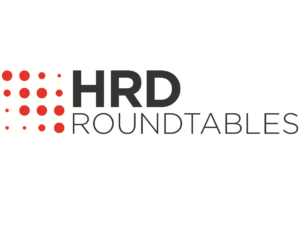Tammy Erickson: HR must lead in creating new organisations
- 5 Min Read
Tammy Erickson has revealed some of the key principles that HR leaders must focus on to build robust and sustainable organisations in the new world of work.
- Author: HRD Connect
- Date published: Nov 1, 2016
- Categories

Tammy Erickson has revealed some of the key principles that HR leaders must focus on to build robust and sustainable organisations in the new world of work.
Erickson also explained why she believes HR leaders should be working more closely with marketing colleagues.
She was speaking to HRD Connect ahead of her keynote session at the HRD Summit 2017, which will see her team up with fellow Thinkers 50 member Lynda Gratton.
What is the biggest challenge facing the HR profession right now?
Work is undergoing a profound change. Industrial work was based on standardization – finding the best process and insuring that everyone conformed to that process. Knowledge work or, as I prefer to call it, work that is based on leveraging intelligence broadly cannot, by definition, be standardized.
It requires motivated individuals, willing to invest discretionary energy to make smart decisions – to innovate, collaborate, provide extraordinary customer-centric service, and so on.
This requires dramatically different organisations than are appropriate for strictly industrial work, based on new philosophies regarding the relationship between the employer and those who work, supported by many new processes and approaches.
HR’s greatest challenge is to lead in this change – to create fundamentally new organisations. As part of this, HR must clearly understand the assumptions that underlie processes used effectively in the past and the conditions that will shape new demands.
What is likely to have the greatest effect on the work of HR teams: business strategy or government policy?
Although both, of course, will be important; one demands change and the other requires stability. In this tug-of-war, I would give the edge to government policy.
Business strategies are already seeking to leverage intelligence in a variety of ways; however, the constraints imposed by government policy prevents many HR teams from creating and adopting appropriate new organisations. As a result we have “cracks in the ceiling” – caused by old processes trying to be force-fit into new conditions.
Where can HR make the biggest difference in an organisation?
This is difficult, since there are many changes required. Probably the single biggest difference would come in helping the leadership of the organisation broadly understand its new role – to understand the logical differences between running an industrial operation well and running one that is based on leveraging intelligence.
HR will need to help the leadership team determine which parts of the business should be run in each way and open the organisation to new approaches in the knowledge-based portions of the enterprise.
The primary role of leaders in the new organisations is to create a context or an environment in which adults will want to contribute to the success of the enterprise.
How should HR leaders be adapting to the modern technologically advanced workplace?
Today’s technology makes it possible to find almost anyone or anything, anywhere easily and quickly. It dramatically reduces the cost of communication – transactions, coordination, and pattern detection.
Directionally, it makes it less necessary for organisations to control or ‘own’ resources, since virtually anything (and anyone) can be tapped when needed. The logical implication of this is that organisations will find it less important to have full-time employees.
As I will discuss at the HRD Summit, I expect organisations to become task based, with flexible portfolios of contingent labour, coordinated on an as-needed basis.
Should a HRD be working more closely with the CIO instead of the FD?
I’d say that a HRD should be working more closely with Marketing, than either of these two, although of course both remain important partners. But the HR role in businesses that leverage intelligence and depend on discretionary energy will be more similar to that of brand managers, based on creating strong promises, memorable brands, and consistent experiences.
Is it possible to be a stable and flexible organisation at the same time?
Yes, if the stability is based on a shared purpose and what some have called “simple rules” that bind communities of adults together.
What are the three key skills a HRD will need to deal with the workplace of the next decade?
- Understanding “brands” and the development of an experience (in their case, an employee experience) that is consistent with the brand – another way to say this is “understanding how to create a shared sense of purpose” – I’d say the latter phrasing is what you want to accomplish; the former phrasing is the skill required to execute it,
- Strong relationship skills and a sophisticated understanding of networks – the ability to use and to help others use informal relationships to get things done,
- Complete comfort with the rapidly evolving technology, including the use of social systems to tap a broad portfolio of talent, when needed, and the use of smart machines to substitute for many of the routine knowledge tasks of today.








